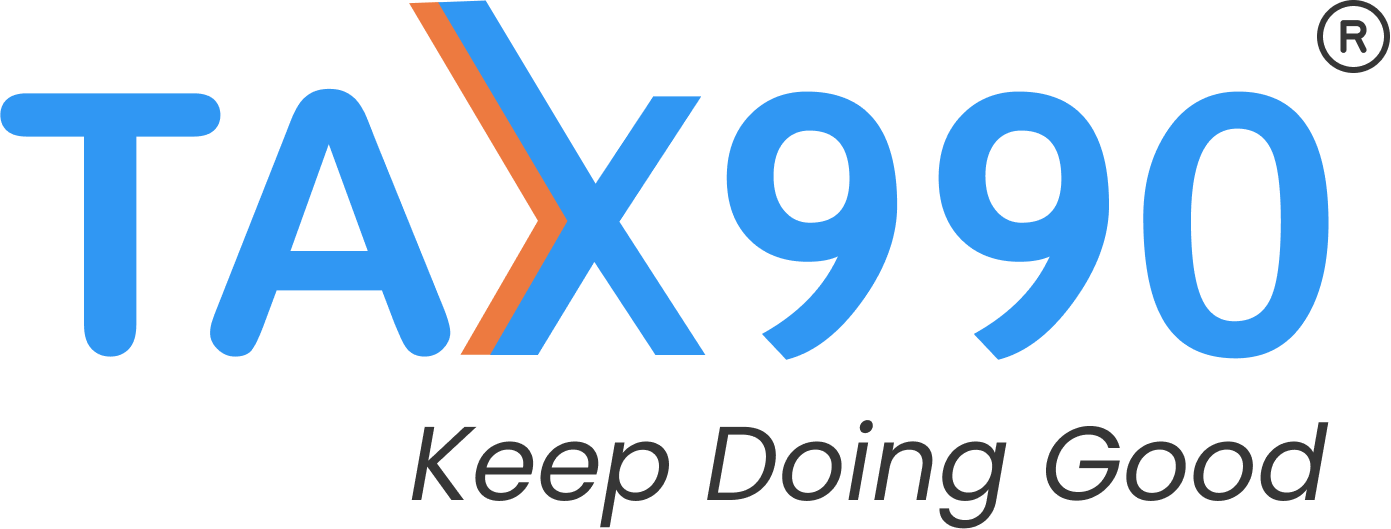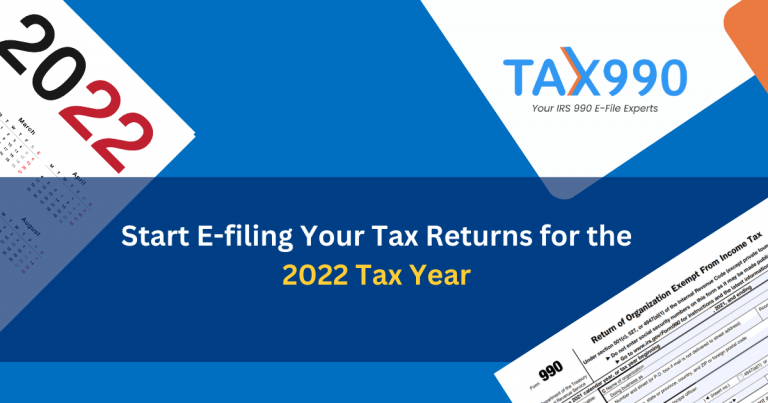Checklist for Nonprofits to Prepare for Their Form 990 Deadline
Estimated reading time: 9 minute(s)

Filing your tax-exempt return on time may seem impossible, but Tax 990 is here to help. Here’s a quick checklist to help guide you through the process so you don’t miss your deadline!
1. Figure out which form you should file.
The first step is to decide which 990 form is appropriate for your organization. Tax 990 currently supports the filing of Form 990, 990-N, 990-EZ, 990-T, and 990-PF.
If your organization has less than $50,000 in gross receipts, you can file a Form 990-N. If your organization has more than $50,000 but less than $200,000 in gross receipts, you can file a 990-EZ. If your organization has more than $200,000 in gross receipts you can file a 990.
2. Gather your organization’s necessary information.
The next step is to collect the necessary information for your organization’s return. You will need:
- IRS Determination Letter: this includes your organization’s accounting period, filing requirements, and information about your tax-exempt status.
- Organization information: You will need to provide details such as your organization’s name, EIN, address, and tax year. Additionally, the forms will ask about your organization’s financial and charitable activities, staff, and the group exemption number.
- Financial information: You will need to know your organization’s expenses, revenue, assets, and liabilities.
3. Create a Tax 990 account.
You’ll need to create a free Tax 990 account in order to file your return. The first step to filing is logging into your account. If you already have an account with us, you should log in and check all of your organization and account information to ensure it is up-to-date and accurate.
4. Choose the right form and start filling it out
After you’ve verified your account and organization information, it’s time to start filing. Choose the correct form and a filing method. Tax 990 offers two filing methods: interview-based and form-based.
The interview-based method will take you through a series of questions about your organization. Your information will automatically be filled into the form. The form-based method allows you to directly input your information into the form line by line. If you are used to paper filing, you may be more comfortable with the form-based option as it mimics paper filing.
5. Check over your information for any errors
After completing your form, it is important to check for any errors. Tax 990 will automatically review your return for any errors and allow you to fix them before you transmit your form. If you transmit your form to the IRS and realize you’ve made a mistake or your organization’s information changes, you can amend your return and retransmit it.
6. Transmit your form to the IRS
Once you’ve made sure your form is accurate and complete, you’re ready to transmit your form to the IRS! Just click “transmit,” and you’re done! Tax 990 will provide you with updates on the status of your return. If for any reason the IRS rejects your return, we provide the reason for rejection and allow you to resolve the rejection errors and re-transmit it for free.
Although filing your tax-exempt returns can be time-consuming and occasionally confusing, Tax 990 makes the process more straightforward. It’s always a good idea to get ahead of deadlines and Tax 990 makes this possible!
Start filing today at Tax990.com!



